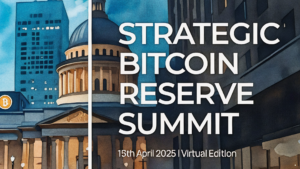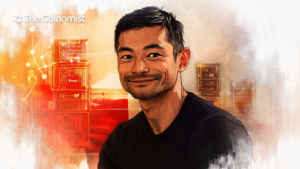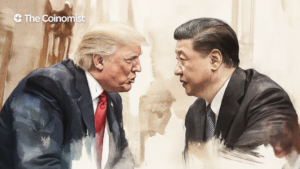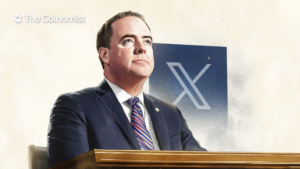Real Vision or Just Hype? The Founders of American Bitcoin Make Their Case
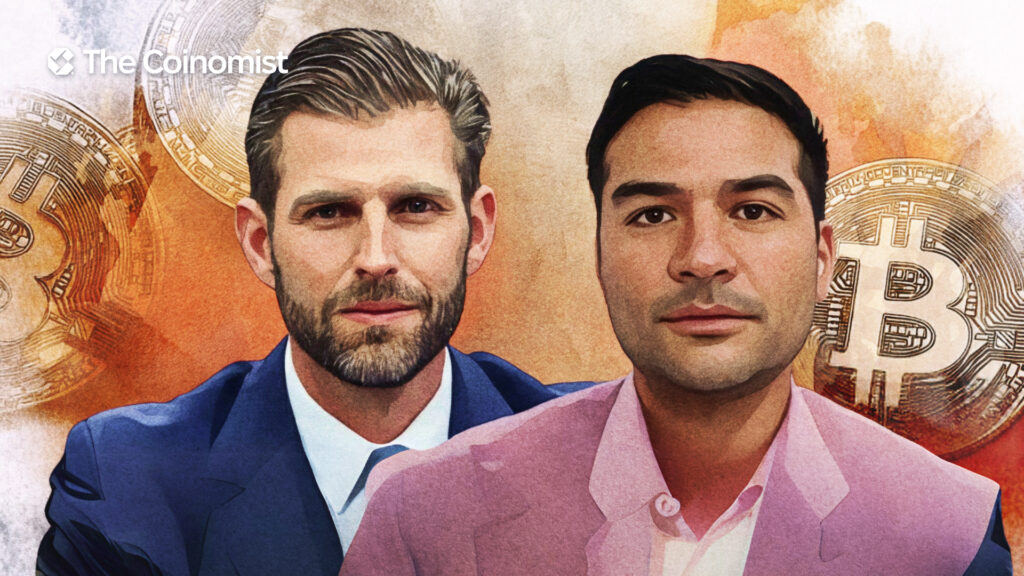
American Bitcoin, a new project led by Hut 8 and Eric Trump, aims to bring Bitcoin mining home. But with Trump-era tariffs looming, can ideology and infrastructure outpace geopolitical risk?
On this page
- Where Politics Meets Proof-of-Work
- For Eric Trump, Bitcoin Is Personal
- A Platform with Political Muscle
- Born from a Merger, Built for Scale
- Two Investment Tracks, One Ecosystem
- Mining Ambitions Beyond the Ordinary
- Can Tariffs Turn Bitcoin Into a Strategic Asset?
- From Ideology to Industrial Strategy
- Tariffs, Hardware, and the Mining Equation
- A Geopolitical Pivot Toward Domestic Crypto Power
- The Strategic Reserve Question
- Potential and Challenges for American Bitcoin
In late March 2025, an unexpected press release stirred the crypto world: Hut 8, one of North America’s largest Bitcoin miners, was joining forces with Eric Trump and Donald Trump Jr. to launch American Bitcoin Corp. The new firm promised to become the most efficient Bitcoin miner on Earth and, intriguingly, to build a “strategic Bitcoin reserve.”
The timing was clear and unmistakable. With Donald Trump’s return to political prominence and renewed rhetoric about economic nationalism, the very name “American Bitcoin” landed like a message. Behind the branding was a deeper question:
Was this a serious business strategy, or just political theater in digital form?
To answer it, we turn not just to the headlines, but to the men shaping this new venture:
- Asher Genoot, CEO of Hut 8 and the deal's architect,
- Eric Trump, co-founder and a prominent political voice.
Check this out: Metaplanet Appoints Eric Trump as Strategic Advisor Amid Bitcoin Adoption
Where Politics Meets Proof-of-Work
The partnership didn’t start in a boardroom. According to Asher Genoot, it started more organically — a few conversations, a mutual respect for infrastructure, and a shared passion for Bitcoin.
Eric and I sat together and started chatting. I said, ‘Why crypto? Why Bitcoin?’ And he talked about being raised on construction sites, growing up around real infrastructure. He got it. And we realized we could build something real together,
– Genoot recalled in a CNBC interview.
The “something” became American Bitcoin: a standalone mining company carved out from Hut 8’s existing mining assets and infrastructure. Genoot’s strategy was clear — split the risk.
- Hut 8 would remain an infrastructure provider;
- American Bitcoin would carry the volatile, high-reward mining operations.
Two companies, two investor profiles, one shared engine.
Now we have a secret sauce. Hut 8 is the energy infrastructure platform. American Bitcoin is the miner. It allows investors to choose their exposure — and allows us to lead both segments more effectively,
– Genoot said.
For Eric Trump, Bitcoin Is Personal
If Genoot is the business mind behind American Bitcoin, Eric Trump is the emotional core. And his pitch for crypto is not about speculation — it’s about survival.
The modern financial industry tried to put our family out of business. Banks closed accounts, people were debanked for political reasons. We were the most canceled company on Earth. That’s what drove us toward crypto,
he charged.
Trump describes Bitcoin as a kind of economic refuge — a decentralized escape route from politicized finance. He calls it “digital gold”, not just for its scarcity but for its liquidity and independence.
I can sell a hotel, sure — but it might take me 12 months. Bitcoin is liquid. It moves anywhere in the world, 24/7. It’s the perfect complement to the hard asset world we love,
he pointed out.
In his view, American Bitcoin isn’t just a mining operation. It’s a statement of sovereignty, a response to a financial system he believes is broken and rigged.
Why do banks have the tallest buildings in every city?
he asked rhetorically.
And they can’t even approve a mortgage in under 100 days. Meanwhile, crypto is here, it’s working, and it’s the future.
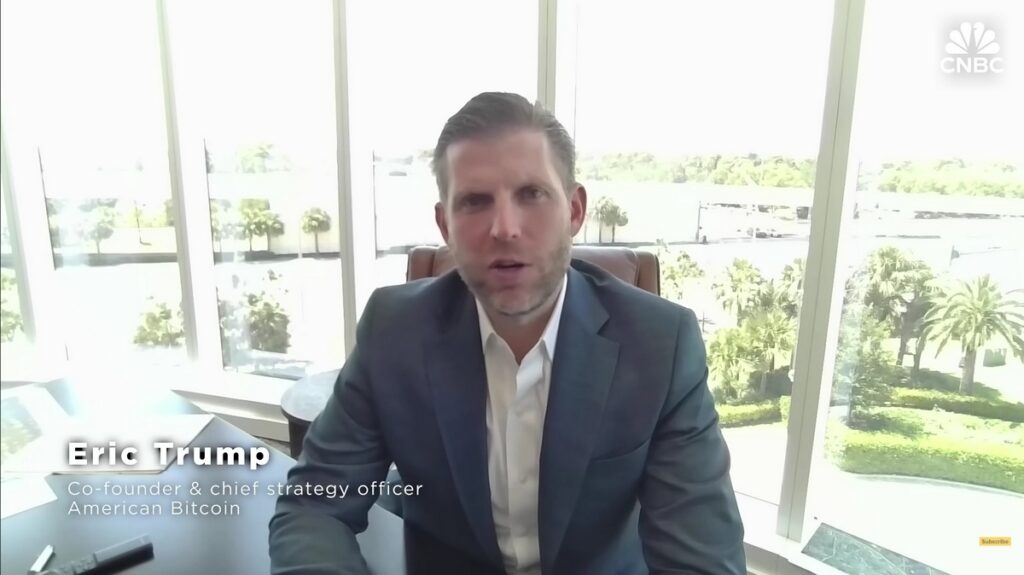
A Platform with Political Muscle
Born from a Merger, Built for Scale
American Bitcoin isn’t a startup in the traditional sense.
It was born out of a merger:
- Hut 8 contributed the majority of its ASIC miners in exchange for 80% of a newly rebranded entity.
- Eric Trump became its Chief Strategy Officer.
- Donald Trump Jr., is a vocal supporter, though not officially listed in the management team.
Two Investment Tracks, One Ecosystem
The operational structure divides responsibilities:
- Hut 8 manages the infrastructure, providing investors exposure to energy and data infrastructure
- American Bitcoin focuses on BTC production, offering pure-play Bitcoin mining exposure.
Mining Ambitions Beyond the Ordinary
And ambition? 50+ exahash of mining power, ultra-low energy costs, and a public listing on the horizon.
We're not just another miner. We're building a platform for scale. And we're doing it with strategic alignment between infrastructure, compute, and crypto,
— Genoot declared.
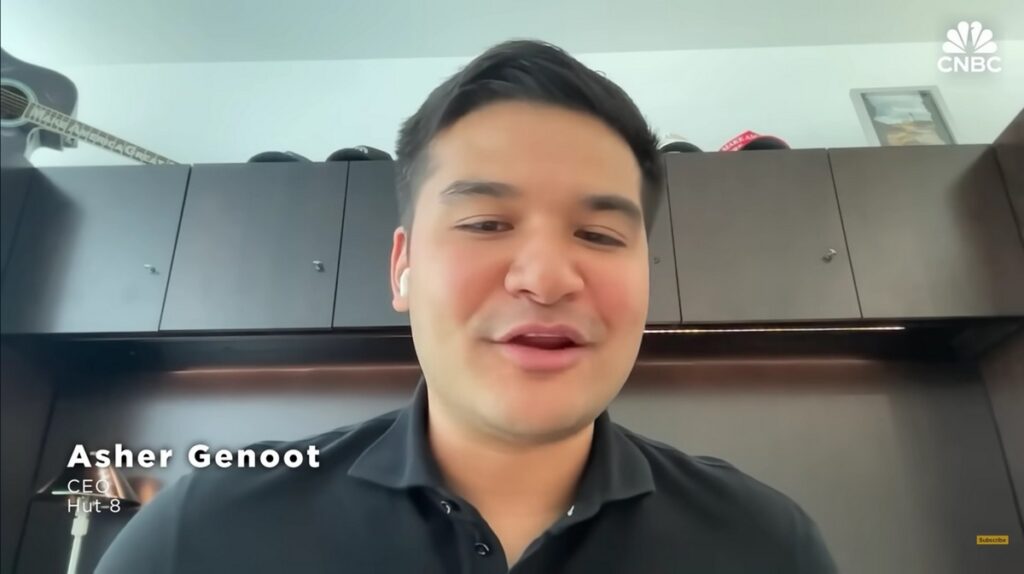
Can Tariffs Turn Bitcoin Into a Strategic Asset?
From Ideology to Industrial Strategy
Behind the ideology and infrastructure is another undercurrent: protectionism. With Donald Trump leading in several 2025 presidential polls — and already rolling out an aggressive new tariff policy — the American Bitcoin project starts to look less like opportunism and more like positioning.
Tariffs, Hardware, and the Mining Equation
In fact, analysts at PitchBook recently argued that Trump’s tariff regime could reshape the crypto mining landscape entirely. According to their February note, tariffs on Chinese-made ASIC hardware — the backbone of Bitcoin mining — could increase operational costs significantly. That would hurt foreign operators and incentivize domestic mining infrastructure, especially in low-cost energy regions like Texas or the Midwest.
Every sophisticated country is using its excess power to mine Bitcoin. The U.S. should lead this. We’ve got the lowest energy costs and the best infrastructure,
– Trump said.
A Geopolitical Pivot Toward Domestic Crypto Power
PitchBook went further: in a protectionist economy, they expect more localization of mining, more domestic investment in energy-heavy industries, and a shift in global mining power. American Bitcoin appears to be the first public move in that direction.
The Strategic Reserve Question
One phrase keeps surfacing in press materials and interviews: “strategic Bitcoin reserve”.
It’s a bold concept — and a vague one. Is this a long-term BTC accumulation play? A hedge for national capital markets? A political statement disguised as treasury management?
So far, the company hasn’t spelled out the mechanics. But the intention is clear: they want to stockpile Bitcoin as a hard digital asset. It’s an idea borrowed from sovereign wealth strategies, now reimagined in a private-public hybrid form — one that aligns with the Trumps’ America-first ethos.
Potential and Challenges for American Bitcoin
It would be easy to dismiss American Bitcoin as branding in search of substance. But there’s more to this story. The infrastructure is real. The capital is moving. The people behind it — for better or worse — understand media, loyalty, and timing.
Still, there are real risks. As PitchBook noted, crypto mining is hardware-intensive and geopolitically exposed. Supply chains are vulnerable. Energy regulation is local. And the Bitcoin price — the lifeblood of any miner — is out of anyone’s control.
More importantly, American Bitcoin’s ideological foundation could be both its greatest strength and biggest weakness. If Bitcoin becomes politicized in the U.S., it could divide the very market it aims to lead.
But in the eyes of Genoot and Trump, this isn’t just a business — it’s a mission.
This is more than just a venture.It’s a bet on where the world is going. And we plan to lead it,
Genoot concluded.
The content on The Coinomist is for informational purposes only and should not be interpreted as financial advice. While we strive to provide accurate and up-to-date information, we do not guarantee the accuracy, completeness, or reliability of any content. Neither we accept liability for any errors or omissions in the information provided or for any financial losses incurred as a result of relying on this information. Actions based on this content are at your own risk. Always do your own research and consult a professional. See our Terms, Privacy Policy, and Disclaimers for more details.



